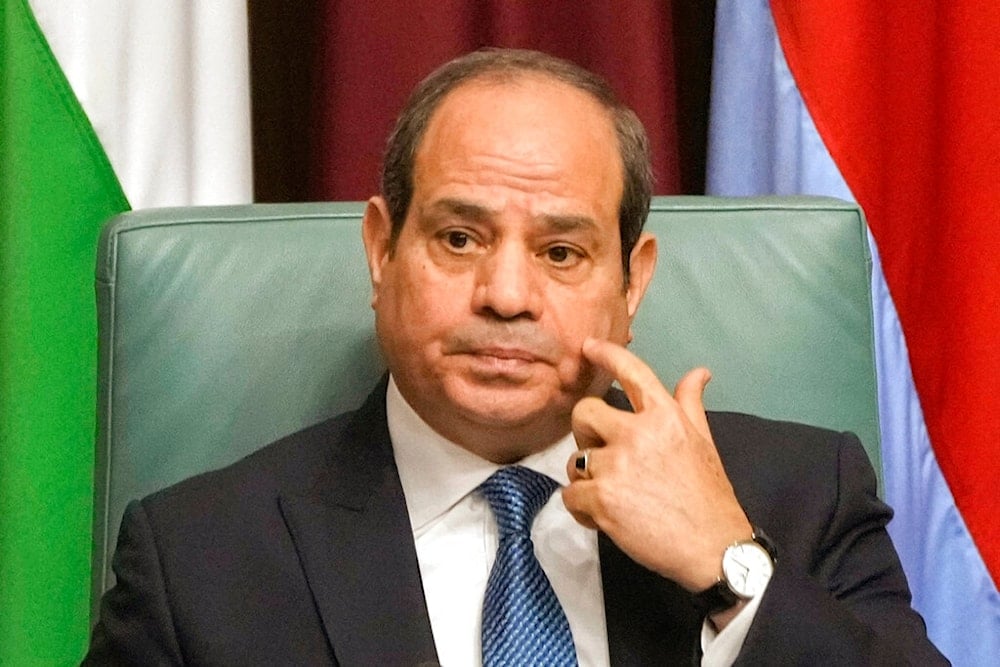Egypt's President warns of 'unbearable' economic pressure
Since 2022, Egypt’s economy has been in crisis, heavily reliant on imports and dominated by military-linked enterprises.
-

Egyptian President Abdel Fattah el-Sissi, attends a conference to support Jerusalem at the Arab League headquarters in Cairo, Egypt, Sunday, Feb. 12, 2023. (AP)
Egyptian President Abdel Fattah al-Sisi warned on Sunday that the country’s growing economic challenges could lead to "unbearable" pressure on the population, potentially forcing a review of Egypt’s economic reform program with the International Monetary Fund (IMF).
Speaking at the Global Congress on Population, Health, and Human Development in Cairo, Sisi’s remarks come as Egyptians prepare for further inflation, following the third fuel price hike this year.
"If these challenges will make us put unbearable pressure on public opinion, then the situation must be reviewed with the IMF," Sisi said.
Since 2022, Egypt’s economy has been in crisis, heavily reliant on imports and dominated by military-linked enterprises.
Foreign debt has surged, while the Egyptian pound has experienced several devaluations, fueling inflation that peaked at nearly 40% last year.
Although inflation has recently fallen to 26%, rising fuel costs, including a 17% increase in diesel and industrial fuel, are expected to push prices higher.
The IMF approved an additional $5 billion loan for Egypt this year, with conditions that include a more flexible exchange rate, reduced government debt, and increased private sector involvement.
However, Sisi stressed that Egypt’s challenging regional and global circumstances, including ongoing wars on Gaza and Sudan, must be factored into the reform process.
Read more: UAE hides weapons behind aid to fuel conflict in Sudan: NYT
Sisi also noted that disruptions in the Red Sea have reduced Suez Canal revenues by $6-7 billion in recent months, further straining the country’s finances.
"We have lost $6-7 billion only in the past seven or eight or 10 months," Sisi said.
As inflation and fuel hikes continue to place pressure on the population, the IMF’s next review of Egypt’s loan program, initially planned for September, is expected in the coming months.
Anticipated Economic Pressure
Egypt’s economic pressure stems from a combination of internal vulnerabilities and external challenges.
The country’s heavy reliance on imports, including essential goods and fuel, makes it particularly sensitive to global market fluctuations. Soaring foreign debt and the devaluation of the Egyptian pound have significantly increased the cost of living for ordinary citizens.
As part of the IMF agreement, Egypt has been cutting fuel subsidies, which has led to multiple fuel price hikes, intensifying inflation.
The reforms have also placed a heavy burden on the population, raising the prices of goods and services.
Regional wars on Gaza and Sudan, along with the escalation in the Red Sea, have further disrupted key revenue streams like Suez Canal earnings, compounding the crisis.
Read more: Netanyahu remarks on Philadelphi Axis obstructing negotiations: AFP

 3 Min Read
3 Min Read








